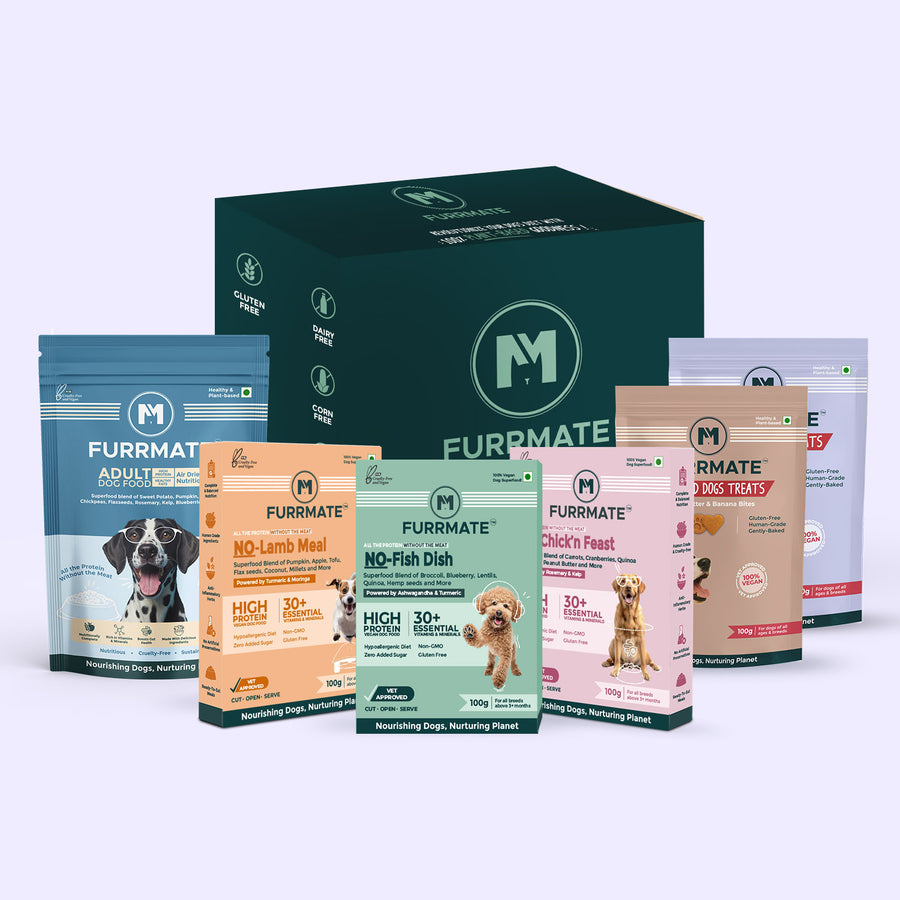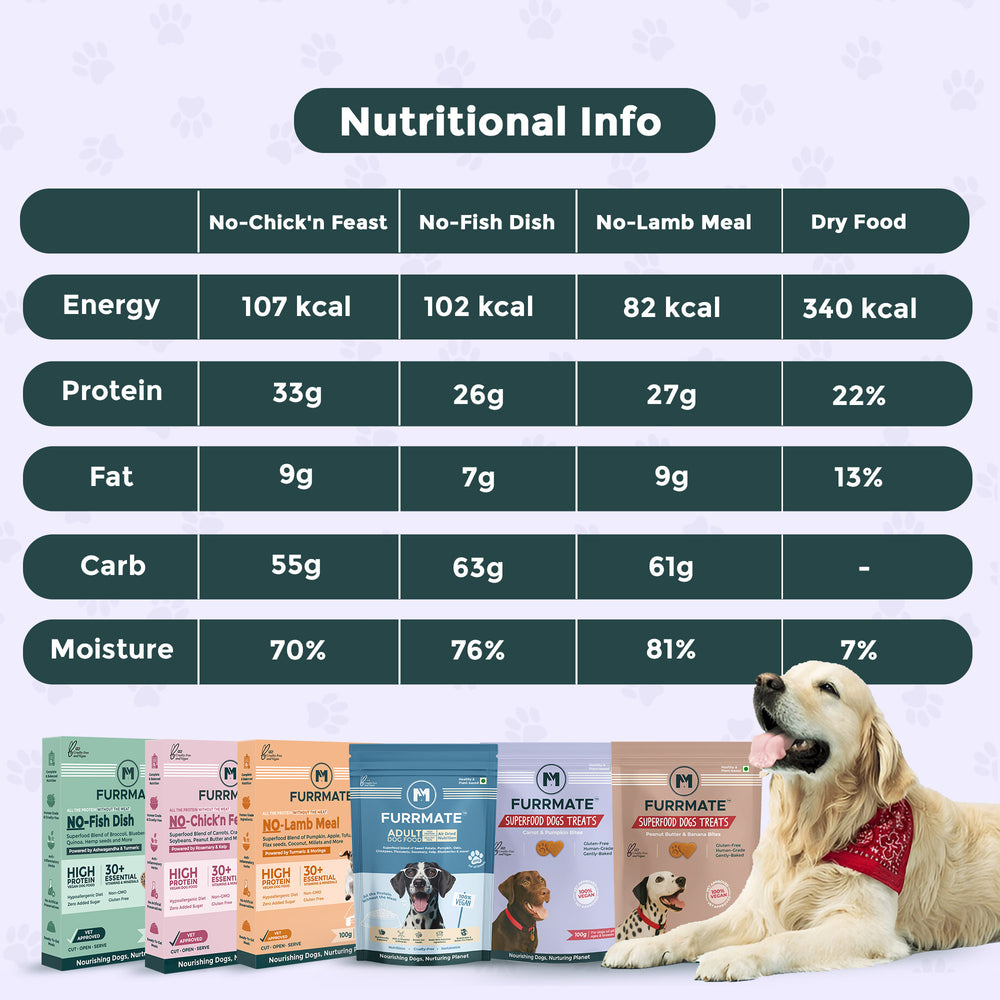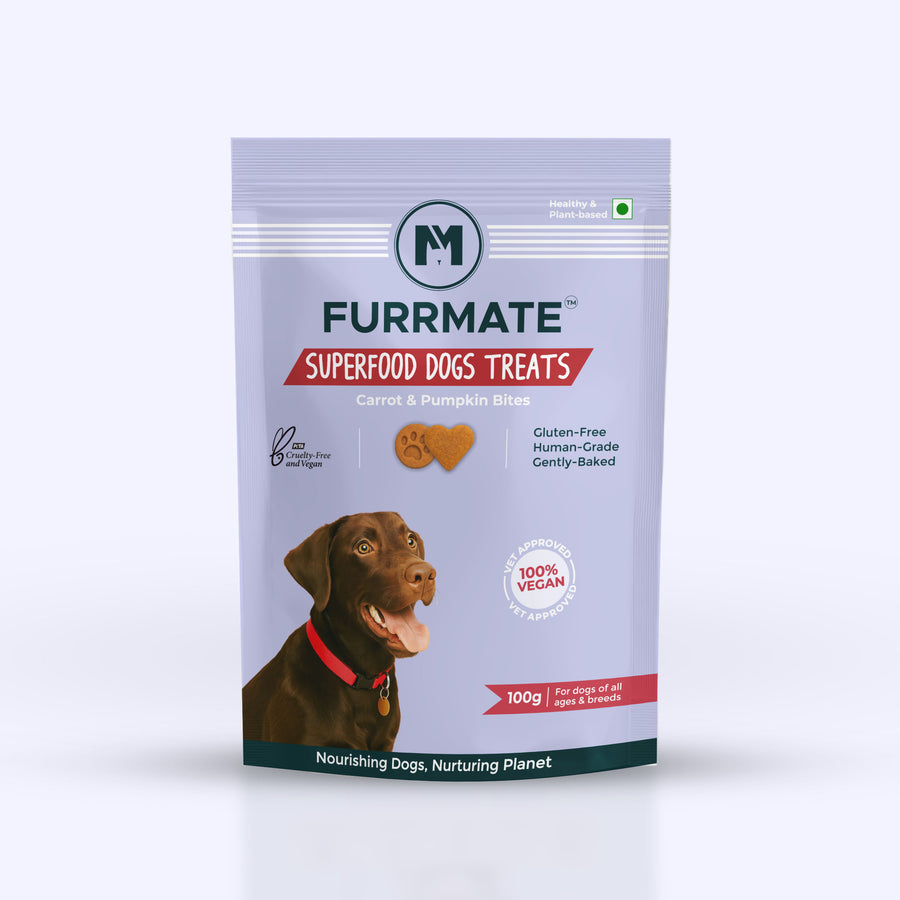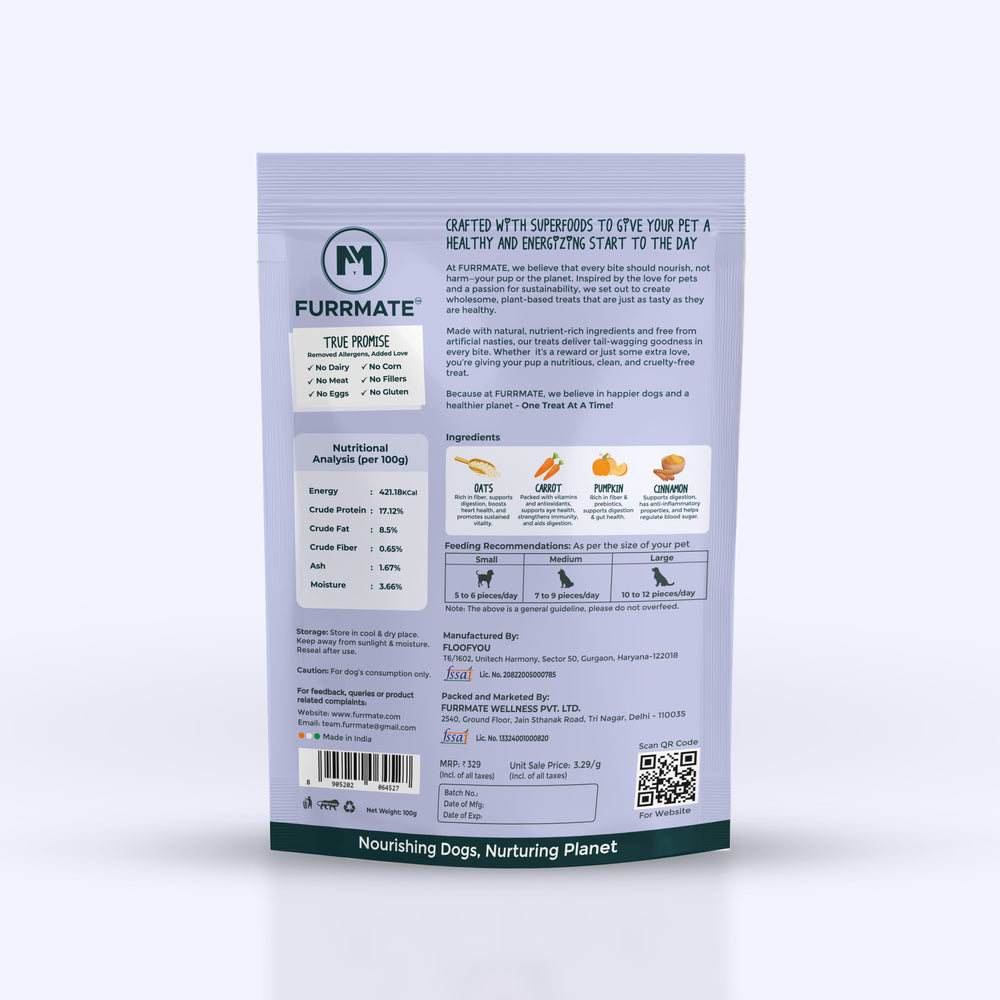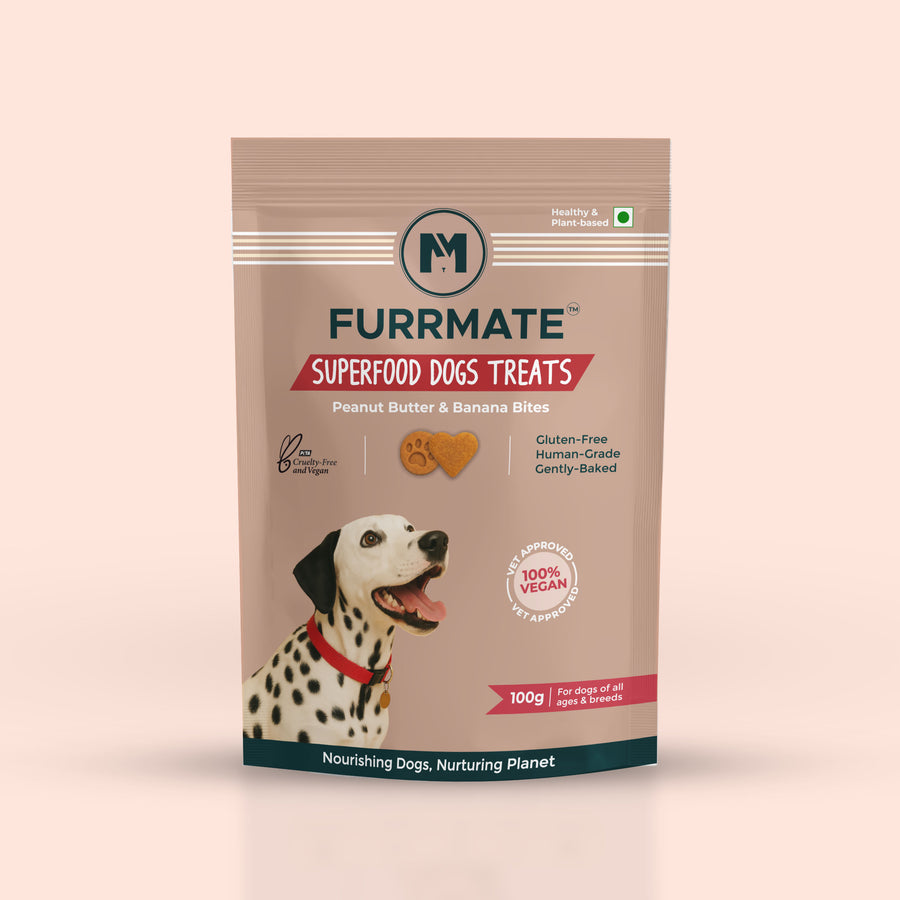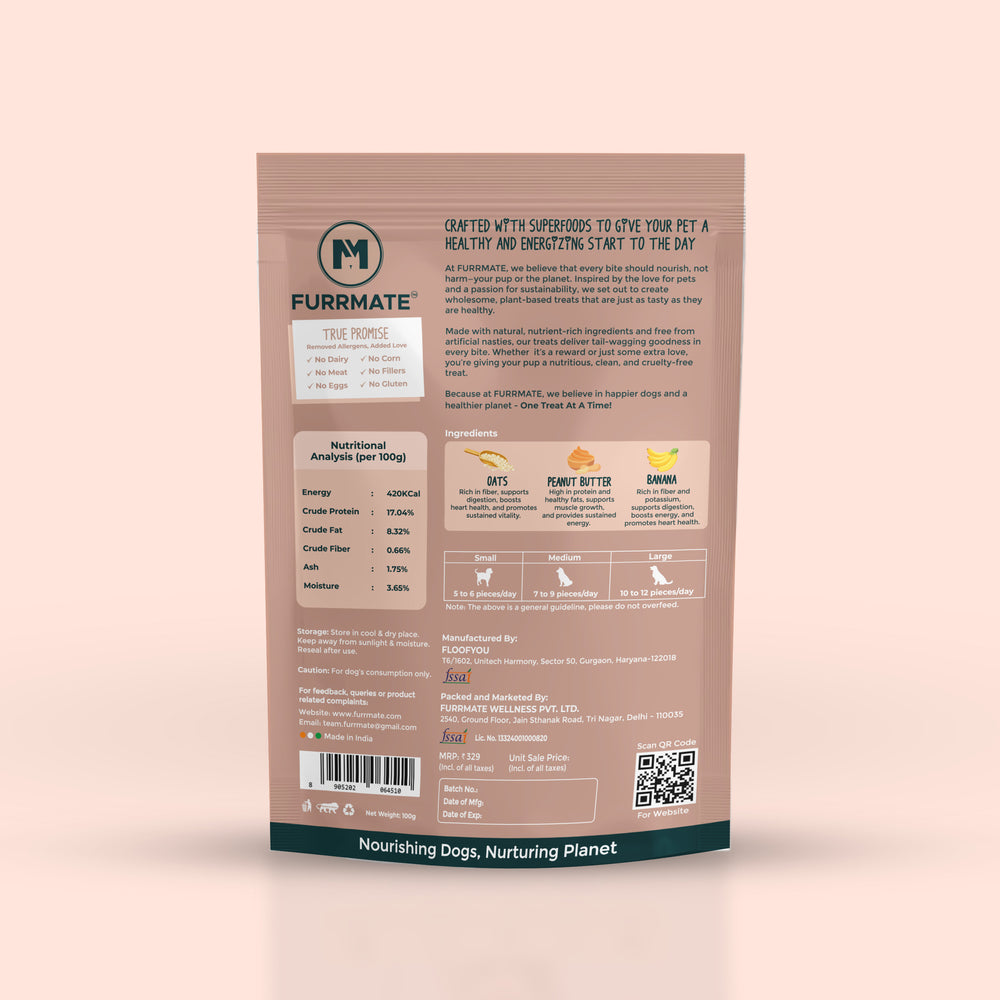Switching to Vegan Dog Food to Minimize Allergies: Is It Really Beneficial?

Pet owners are always keen on providing their dogs with the best nutrition, especially if they have health issues such as food allergies. Food allergies affect most dogs and may result in general discomfort, digestive issues, and itchy skin, to mention a few. In search of ending all these allergies and health problems, pet owners are turning towards vegan dog food as an alternative. But most of them are concerned if vegan dog food truly reduces allergies? Should they move their dog to a plant-based diet? Here, in this blog, we will discuss the potential benefits, drawbacks, and things to bear in mind while switching to plant-based diet for dogs.
What Is Dog Food Allergy?
Dog food allergies are increasingly on the rise among dog owners globally. Just like human beings, dogs can be allergic to some components in their food. Some of the most common dog allergies include animal proteins such as beef, chicken, or lamb, eggs, and cereals such as wheat and maize. The immune system of a dog identifies something as harmful and therefore reacts with an allergy.
General symptoms of dog food allergy are
-
Allergies reactions are more likely to cause irritated and itchy skin.
-
Food-allergic canines can become bloated, can vomit, or experience diarrhea.
-
Ongoing ear infections can signal food allergies.
-
Allergies will make the dogs fidgety or grumpy.
Note: If your pet is showing such signs, the switch to vegetable-based puppy food or hypoallergenic dog food can ease the discomfort.
The Allergy Relief Potential of Vegan Dog Food
Mainly due to the fact that it removes animal proteins that are recognized to cause allergies in many dogs, homemade vegan dog food is becoming more popular. Composed of plant foods, such as peas, lentils, quinoa, and other legumes makes vegan diets less prone to causing allergies. Thus, vegan dog food provides a safer, easier-to-digest alternative by removing common food allergens.
But does it work? For certain dogs, vegan dog food will significantly reduce or even eliminate allergy symptoms. With this being said, every dog is different and thus we always recommend to consult the vet if needed,
Why Should Vegan Dog Food Be Taken Into Account?
Aside from being healthy for food-allergic canines, plant-based dog food has many health benefits. Here's why some owners make the switch:
1. Animal Protein Removal
One of the most common food allergens for dogs is animal proteins. A plant-based diet eliminates these possible allergens and substitutes them with plant proteins.
2. Improved Gastrointestinal Health
Rich in fiber, nutritious canine food promotes healthy digestion. Since fiber keeps the bowels in check and results in better digestive well-being, a diet of vegetables might be suitable for sensitive stomachs in dogs.
3. Skin and Coat Care
Allergies also cause dry coats, itchiness, and over-shedding. Vegan dog food is full of nutrients that promote a healthy coat and shiny skin; it is also full of omega-3 and omega-6 fatty acids, which combat inflammation and soothe irritated skin.
4. Less Inflammation
Allergic reactions in dogs are most often caused by inflammation that can destroy the skin, joints, and gastrointestinal tract. Furrmate’s vegetarian pet meal packs reduce inflammation, thereby improving the mobility and comfort of your dog.
5. Support to the Immune System
A well-balanced fresh vegan dog food contains vitamins and minerals that can enhance the immune system. Ingredients such as vitamin C, vitamin E, and zinc make your dog more immune to environmental allergies and other potential health problems.
What Should You Look for in Vegan Dog Food?
All vegan dog diets are not created equal. Vegan dog food is normally a great idea for dogs that have allergies, but you have to select the correct product so that your dog gets the proper nutrients that it requires.
Among various significant things to be considered are the following:
1. Protein Sources
Vegan pet food must include quality plant sources of protein like peas, lentils, chickpeas, and quinoa. All these are rich in essential amino acids for the overall health and muscular upkeep of dogs.
2. Omega Fatty Acids
Omega-6 and omega-3 fatty acids have a function in lowering inflammation and skin condition. Choose natural sources of these essential fatty acids in vegan dry adult pomeranian food ingredients, like flaxseeds, chia seeds, and algae.
3. Fiber Count
A diet high in fiber can help your dog's digestive system. Choose foods with fiber-rich components such as sweet potatoes, pumpkin, and peas because they help maintain healthy digestion.
4. Enriched Nutrients
Make sure vegan dog food is rich in vitamins and minerals such as vitamin B12, calcium, and vitamin D. These vitamins are typically found in animal foods and should be added to a vegan diet so that they are not deficient.
5. No Artificial Additives or Fillers
Select affordable vegan canine food made from whole-food, natural ingredients. Steer clear of those that have artificial flavor, color, or preservative, as they may someday taint your dog's health.
Here are some issues faced by allergic dogs if they started to eat vegan dog food.

Even while vegan dog food has some positive aspects, some issues need consideration before making a switch:
1. Nutritional Deficiencies
Though most vegan dog diets are designed to give dogs what they need as far as nutrients are concerned, key ingredients like vitamin B12, taurine, and carnitine are usually left out in some recipes. Opt for a balanced diet and supplements, if needed consult your vet.
2. Gastrointestinal Problems
Some dog breeds don't actually do very well on a vegan diet, especially if their stomachs are sensitive. Plant-based food needs to be adjusted over time so as not to upset their stomachs, i.e. diarrhea and vomiting.
3. Needs of Special Breeds
A vegan wet dog diet will not be suitable for every breed, especially those with higher protein needs or specific health issues. Always consult your vet to determine if a vegan diet is something your dog is suitable for, especially if your dog has specific medical problems.
Transitioning to Plant-Based Canine Nutrition
The process of acclimatizing a dog to a vegan diet involves a step-by-step approach to prevent the risk of possible gastrointestinal disturbances. Firstly, one needs to add small amounts of vet-approved veg pet food to the pet's current diet; then, after 7 to 10 days, one has to gradually increase the proportion of vegan food. Throughout this time, one should monitor the dog's reactions for signs of intolerance, which may manifest in the form of vomiting, diarrhea, or over-scratching.
It is advisable to consult a veterinarian if your dog exhibits adverse reactions during the dietary transition. The veterinarian may suggest an alternative hypoallergenic diet or identify any additional underlying health concerns.
Other Food Allergy Ingredients for Dogs
In addition to switching to vegan dog food, there are also other factors to consider if you want to manage your dog's allergies:
Managing Environmental Allergies
Dogs may also be allergic to environmental factors, including pollen, dust, mites and mold. Keeping the environment clean for your dog will be the outcome of regular washing of their beds, vacuuming of carpets, and the use of air filters to reduce contaminants in the environment.
Regular Veterinary Visits
Regular visits to your vet enable you to monitor your dog's allergy symptoms as well as his overall health. Other medications, such as nutraceuticals or supplements, can be recommended by your vet to make your dog comfortable and reduce symptoms.
Treats Free of Allergens
Apart from switching to vegan dog food, consider offering allergen-free treats that suit your dog's altered diet. Many vegan dog treats available can be a great way to treat your dog without aggravating their allergies.
Look at Labels Closely
Selecting vegan dog food requires careful reading of labels. There are vegan foods containing poor-quality ingredients, fillers, or preservatives that will further aggravate your dog's condition. Select companies that place high-quality, natural ingredients as their first choice.
Conclusion: Is Vegan Dog Food Good for Your Allergic Dog?
For the majority of dogs, especially those with animal protein sensitivity, a change to top-rated vegan dog food for allergies is an excellent choice. By removing common allergens, supporting digestive health, and being part of overall health, vegan food can make a big difference in your dog's life. A well-chosen selection of a nutritionally complete vegan dog complete meal pack and a visit to your vet, if needed, will guarantee you meet your dog's needs.
With the right care and guidance from the veterinarian, vegan wet dog food can potentially result in a healthier and potentially longer lifespan for your dog.
